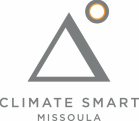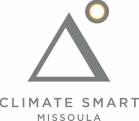|
While climate change is problematic for all people, native peoples are disproportionately affected. The root of many injustices are that some voices are heard, while others are silenced. In this, we find it important to work to give a voice to the voiceless. We aim to listen. In Missoula, we are in the aboriginal territories of the Salish, Kootenai, and Kalispel people. We acknowledge the past and the history of oppression associated with it. |
Considering that these lands have been home to these peoples for generations, it only makes sense to turn to them for the wisdom and knowledge of this place, as well as the traditional ecological knowledge they have amassed overtime. The Confederated Salish and Kootenai Tribes (CSKT) have been local leaders on the issue of climate change. For the CSKT, “environmental stewardship is deep-rooted and tied to a tradition and history with the land and [their] way of life.” |
What is Traditional Ecological knowledge?
Traditional ecological knowledge (TEK) refers to the evolving knowledge acquired by indigenous and local peoples over hundreds or thousands of years through direct contact with the environment.
TEK is particularly well suited for identifying environmental changes attributable to climate change at the local and regional level.
TEK allows consideration of ongoing changes in ecosystems over long periods of time.
Further, it may provide a more accurate sense of risk to the types of changing conditions, such as drastic changes in average temperature, that have occurred over time.
TEK is particularly well suited for identifying environmental changes attributable to climate change at the local and regional level.
TEK allows consideration of ongoing changes in ecosystems over long periods of time.
Further, it may provide a more accurate sense of risk to the types of changing conditions, such as drastic changes in average temperature, that have occurred over time.
Want some more resources?
To learn more about the inseparable relationship between native peoples and fire in the northern rockies, visit here.
Indigenous land management may be the best way to address the wildfire crisis; read about it here.
Learn about how climate change is threatening wild rice in the midwest, a staple food for Ojibwe communities.
Read the EPA's blog post on using TEK to adapt to climate change.
Read this paper about indigenous people and environmental justice.
Watch a video of the climate change observations made by tribal elders:
Read the CSKT Climate Change Strategic Plan here.



